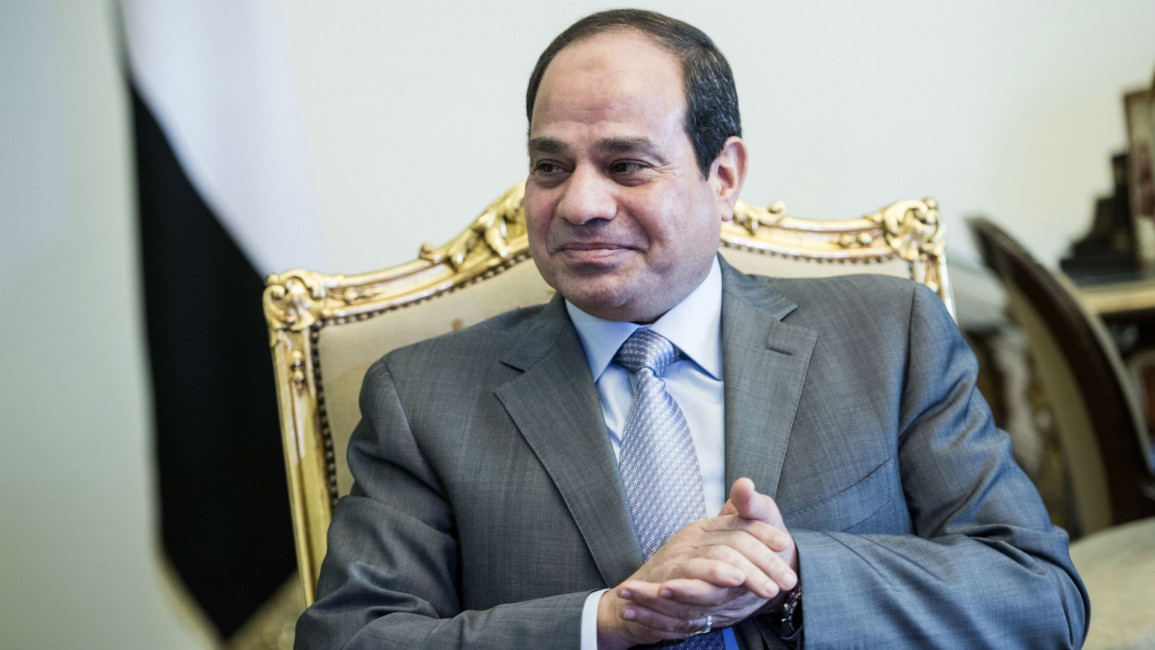
Meeting Sisi
After the success of the 25 January 2011 revolution in Egypt, the Military Council was interested in meeting with political activists and the media to benefit from their vision of what might come next - or so it seemed at the time. I remember attending one of these meetings with three members of the Military Council, one of whom was then Intelligence Chief General Abdul Fatah al-Sisi, along with two media professionals, and one of the young supporters of the revolution.
The meeting lasted almost five hours in one of the hotels run by the army. For the most part, the intelligence chief elaborated on how the army admired the revolution, was proud of its youth and proud that the army took part in it. Ironically, the hotel that was the setting for this love-in also witnessed the preparations for the 30 June 2013 counter-revolution, which paved the way for the subsequent coup which brought Sisi to power.
I recalled those events after yesterday’s announcement that the Engineering Authority of the Armed Forces would initiate a project to build 150,000 housing units, and, as the main contractor, would also distribute contracts to private construction companies.
In that first meeting, only a few weeks after the fall of Mubarak, I said that the great Egyptian army had come too close to the mundane details of politics and the economy, in a way that put the military in the middle of the daily battles raging across Egypt at the time. In front of the leaders of the Military Council, I said it was no longer appropriate that the
| The military [said] it was not appropriate for the army to remain in the streets for more than six months. Sadly, we believed them. |
Council address the people through a Facebook page and involve itself in electronic discussion, gossip and chatter. The army should return to the most exalted of front lines, I said, allow its Facebook admin to rest and do something else more beneficial, for the army and for the public.
Straining relations
Meanwhile, the relationship between revolutionaries and the military became strained, and it seemed the partnership we thought was real during the revolution turned out to be nothing but an illusion. The army was responsible for forced “virginity tests” and the violent dispersal of rallies and sit-ins, which tarnished the beautiful illusions held by young supporters of the revolution about the army - and went on to fuel their fury.
I told the military leaders that we had grown up believing the status of the army in society was so elevated it occupied lofty mountain tops; its prestige was part of our very existence as Egyptians. As children, we used to imagine “the army” was far away, elevated to the extent that we would not see it until we became men and had the honour of defending our homeland against its enemies. But the world changed and the army became too familiar, too close and too deeply involved in the minutiae of everyday life.
The military responded by pointing out that the situation was imposed on it because of a lack of security. We listened to touching talk about how soldiers yearn to return to being soldiers in their barracks. There were clear statements confirming it was neither appropriate nor safe for the army to remain in the streets for more than six months. Sadly, we believed them at the time.
Take a look around you now. You will find the military still involved in the minutiae of politics, economy and health, from construction work to the fake “kofta cure” it proudly announced for Hepatitis C. And now, after the military’s candidate reached the pinnacle of power, we would not be surprised to hear soldiers complaining that civil society has become too involved in the everyday life of civilians.
This is an edited translation from our Arabic edition.
Opinions expressed in this article remain those of the original author and do not necessarily reflect the opinions of Al Araby Al Jadeed, its editorial board or staff.



